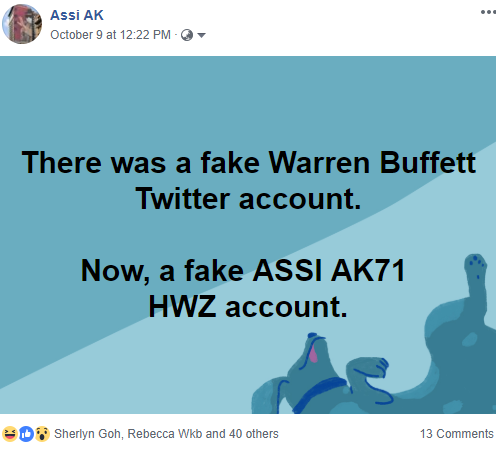Seriously, I am not suited to do investments and I have made a lot of investor mistakes (loss aversion, recency bias etc). What is in my favor is a fairly solid investment foundation and from there, I want to build on it by making a reasonable amount of return with reasonable predictablity, and without needing to make a lot of decisions.
AK says...
Oops. Yes, "Evening with AK and friends" is Q&A. I assume that the audience are all my readers and that they know my approach to achieving financial freedom. "Evening with AK and friends" is for further interaction, face to (masked) face. ;p
If you are a lazy guy like me, yes, make good use of the CPF which you have started doing. That is as good as it gets when it comes to fixed income instruments. It is really a AAA rated sovereign bond with an annuity thrown in.
REITs? Well, it isn't as simple as you think. Investing in REITs looks simple now because conditions are relatively benign for REITs. Of course, for the income investor, REITs are still relevant instruments.
Keep reading. Keep learning.
I am still learning too. :)
You might want to consider regularly socking away some money in an ETF that tracks the STI. ASSI guest blogger, Matthew Seah, blogged about this strategy before and you will find his name in the left side bar of my blog. Click on his name and you will see all his blog posts.
Investing for income, focus on the business and its ability to generate income and willingness to share that income with you. Try not to be (too) emotionally affected by price volatility.
Related posts:
1. Risk averse? STI ETF, REITs or stocks?





















